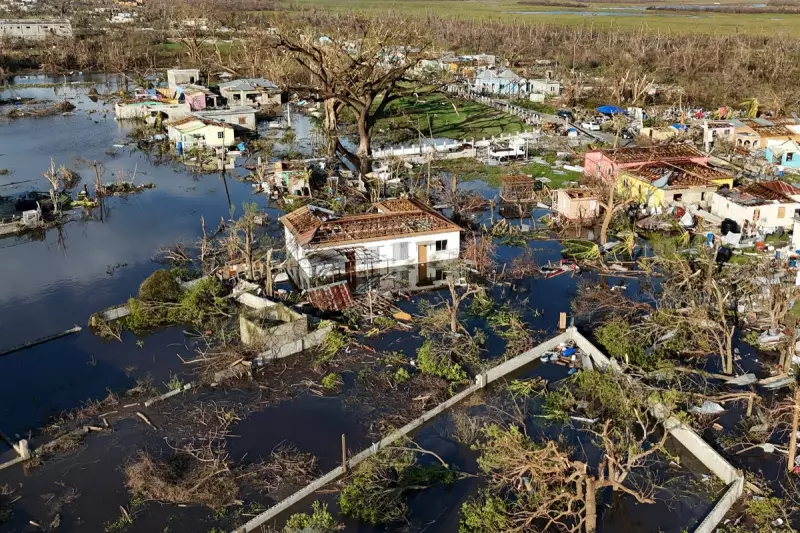
The President of the United Nations General Assembly has issued a stark warning, declaring that the relentless march of climate change represents the single greatest threat to peace and security across the globe. Annalena Baerbock, speaking from the UN climate talks on the edge of the Amazon, asserted that tackling the environmental emergency is the most vital security investment the world can make.
The Vicious Circle of Climate and Conflict
In an exclusive interview with The Associated Press on Friday 21 November 2025, Baerbock directly addressed those who prioritise traditional security concerns. "To those who are arguing that in these times we have to focus more on peace and security, one can only say the climate crisis is the biggest security threat of our century," she stated unequivocally.
The former German foreign minister explained the dangerous feedback loop created by environmental breakdown. She pointed to real-world examples in nations like Chad, Syria, and Iraq, where droughts and climate extremes have devastated agriculture. When crops fail, populations face hunger, prompting mass migration and triggering conflicts over scarce resources like water. "This is a vicious circle," Baerbock said. "If we do not stop the climate crisis it will fuel hunger and poverty which will fuel again displacement and by that will challenge regions in a different way, leading again to instability, crisis and most often also conflict."
Climate Action as a Pathway to Peace
However, Baerbock offered a powerful counter-narrative: proactive climate cooperation can itself be a catalyst for peace. She highlighted a success story in Central Asia, where an agreement on water sharing acted as "a booster for peaceful cooperation and peaceful settlement." This demonstrates that collaborative efforts to manage shared environmental challenges can build bridges between nations.
The UN leader also drew a sharp distinction between slow-onset disasters and sudden climate shocks. While a drought can unfold over years, the immediate devastation wrought by storms supercharged by a warming planet was exemplified by Hurricane Melissa's decimation of Jamaica and two powerful typhoons striking the Philippines just last month. "Achievements of sustainable development can be diminished in just hours," she cautioned.
This, she argued, makes financial aid from wealthy nations to help poorer countries cope with climate disasters and adapt for the future not merely charity, but a strategic necessity. Such support constitutes direct "investments in stable societies and regions," Baerbock affirmed.
Global Momentum and the Power of a Majority
Reflecting on recent legal milestones, Baerbock, a veteran of climate conferences, praised the determination of small island nations. These nations, once scoffed at for their efforts, successfully brought a case to the International Court of Justice (ICJ). The ICJ's landmark ruling in July, which mandates action to limit global warming, "shows the power of the world if it works together," she declared.
With these nations now planning to take the ICJ's decision to the UN General Assembly—a body where majority rule prevails, unlike the veto-powered Security Council—the focus shifts to collective political will. "Now it’s up to the majority of the member states if they want to bring a resolution forward underlining the importance of this case," said Baerbock, who must follow the consensus of the 193 member states.
She expressed confidence in this collective will, noting that "the vast majority of member states" have consistently called for a transition away from fossil fuels, not just for the climate's sake, but because they recognise it as the paramount security insurance policy for all.





